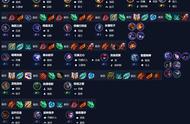(1)作为can的过去式,用在表达“有能力做某事”时的过去式. I couldn’t eat more.
(2)询问对方“我可以怎么样……”,一般是“Could I ……”或者“Could we ……”
(3)请求对方做某事来帮助自己,一般是“Could you ……”后接“help me?”、“come here instantly?”
(4)表示一种可能和猜测。It could rain tomorrow. We could be late.
(5)表示建议。You could go there by bus. We could try again.
(6)表示一种抱怨或者情绪,结果不应该是现在这个样子。I could have been much rich.(我本来应该非常富有的!)
(7)强烈想做某事。I have been treated so badly that I could cry.
《哈利波特》中的例句解析根据这些解释,把《哈利波特》中出现的一些could例句,归类到它们中来。
(According to these explanations, I categorize some of examples of 'could' into 7 types, extracted from "Harry Potter".)
They didn't think they could bear it if anyone found out about the Potters.
应该是can的过去式(1),不能够忍受别人发现哈利波特一家。
What could he have been thinking of?
这句比较难理解,网上很多人问这句话到底什么意思,怎么翻译。Could have been doing 表示虚拟语气,与事实相反,意思是不应该做什么(6)。而这句话又是问句,意思应该是“他刚才在想什么呢?(反问的语气)”,“他真不应该这么想。”,“他刚才怎么能这样想呢?”这样翻译都可以。
Cats couldn't read maps or signs.
猫是读不懂地图或者标识牌的。这里的could作为can的过去式(1)。
As he sat in the usual morning traffic jam, he couldn't help noticing that there seemed to be a lot of strangely dressed people about.
他像往常一样被堵在早高峰的路上,不得不看着外面,发现很多着装怪异的人们。这里的couldn't help doing sth是常用搭配了,这里的could是can的过去式(1).
This bunch were whispering excitedly, too, and he couldn't see a single collecting tin.
这一群人在激动地嘀咕着,但是他看不到一个募捐箱。(他可能以为这些人在为某事发动募捐活动)could是can的过去式(1)。
Was he imagining things? Could all this have anything to do with the Potters?
他又在想象了吗?这些都跟波特一家有关吗?这里的could表示一种猜测和可能(4)。All of these could have something to do with the Potters.
"You'd be stiff if you'd been sitting on a brick wall all day," say Professor McGonagall.
"All day? When you could have been celebrating? I must have passed a dozen feasts and parties on my way here."
"All day? When you could have been celebrating?"这句话也是比较令人费解的。本质是虚拟语气包含了很多“言语外”的信息。一整天?你不是应该在庆祝吗?
结合上下文来理解。McGonagall教授说“你要是在石头墙上站一整天,你也会僵硬”,然后Dumbledore回答说“一整天?你应该在庆祝啊?(怎么会一整天都站在那里呢?)”这句话表达了一种惊讶(6),她不应该站在墙上而是去上街庆祝。
Couldn't you do something about it?你不能做点什么吗?
跟Could you help me?类似,一种请求对方做某事(3)。只是这里是否定的形式。
Even if I could (do it), I wouldn’t (do it).即使我能,我也不愿意。这里的could表示有很大可能性做某事(4)。would do sth表示一种主观意愿,could客观上可以做某事/可能会做某事。例如,I could do it, if you like.如果你喜欢,我可以去做这件事。(但是我并不太情愿。)
总结:词典里给出了多达7个用法,如果这么记的话,比较费力而且还容易弄错。我自己总结的方法来记忆,感觉方便很多,在写作中犯错的概率可能会小很多。
(1)最简单直接的意思,就是作为“can”能力解释时(be able to)对应的过去式。
比如 I can run faster.我能跑得更快些。如果要在过去式状态下表达这个意思,就用could。
还有 “You cannot do it!”对应的就是“You couldn't do it!”你不能这么做。
(2)还有一大类用法就是表达一种建议、询问能否做某事,这个“做”的主语无论是别人还是自己。
Could we go there by bus?(We could go there by bus.)
Could you do me a favor?(你可以帮我个忙吗?)
(3)就是表示一种可能性,有部分猜测的意思。
We could be late.(我们可能要迟到了。)这里和might意思相近。
I couldn't do it.(我可能做不了。)比较下与下面两句的区别。
I wouldn't do it.(我不想做。)
I shouldn't do it.(我不该做。)
(4)最后一类在一些fiction类的书中比较容易见到,就是could have done sth.
它是专门的一大类——虚拟语气,相对来说是比较难理解,不那么直接,比如。
It is difficult enough, but it could have been worse.(这件事已经够艰难的了,但是本来可能会更糟糕呢。)
The worst part ot it is that I could have prevented the accident.(最糟糕的是我本来可以阻止意外的发生。)
,














